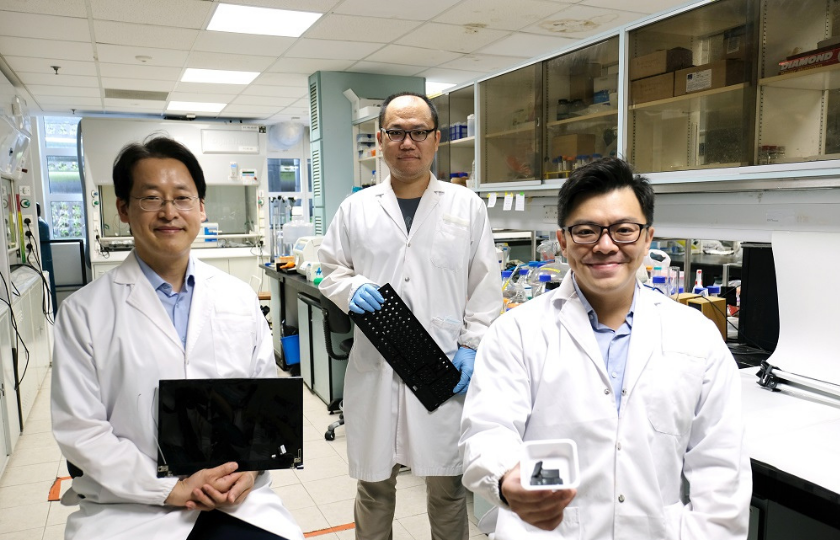Each year, more than 50 million tonnes of electronic waste (e-waste) is produced worldwide, with 20 per cent of that amount plastics.
Unfortunately, plastic found in e-waste is rarely recycled due to its complex composition and hazardous additives.
Scientists in Nanyang Technological University (NTU) in Singapore have discovered a new use for the hazardous material – repurposing them as a plastic alternative used in laboratory cell culture containers.
The NTU team used plastic extracted from e-waste from a local waste recycling facility. Afterwards, they select three types of e-waste plastic based on their surface features – keyboard pushbuttons, diffuser sheets, and prism sheets found in LCDs. The team then transformed the materials into lab culture containers, such as a petri dish.
Based on their research, the team found that over 95 per cent of human stem cells seeded on the petri dish made from upcycled electronic plastic waste still remained healthy after a week, a result comparable to cells grown on traditional cell culture petri dishes.
According to the scientists, repurposing the material for cell culture would not only minimise the amount of e-waste going into landfills but would also help reduce the amount of plastic waste generated from biomedical studies.
“In tissue engineering, we use advanced techniques to engineer surfaces and study how they can influence stem cell differentiation,” said assistant professor Dalton Tay, NTU.
“Now, we have shown that e-waste plastics is a ready source of such microstructures that allow us to study further how stem cell development can be directed – the ‘holy grail’ of regenerative medicine and, more recently, lab-grown meat.”
In the future, the NTU team aims to develop its remanufacturing processes further to upcycle e-waste plastics to help promote sustainable solutions for more industries.



